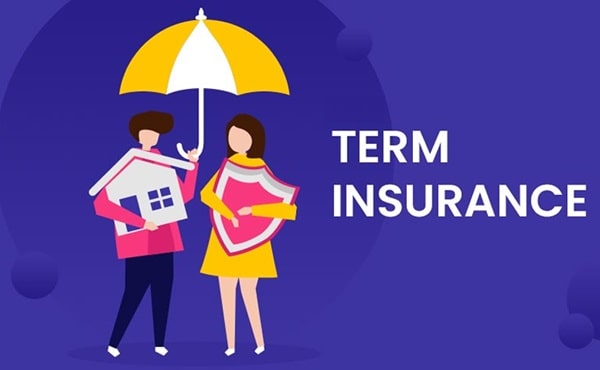Life insurance is a fundamental component of financial planning, but the question of whether everyone needs a policy is a topic of considerable debate. It often depends on individual circumstances, including financial responsibilities, life stage, and personal goals. This blog will explore who typically needs life insurance and under what circumstances, helping you determine if it’s a crucial investment for your situation.
Who Should Be Insured Under a Life Insurance Policy?
While not everyone may need life insurance, certain individuals will find it essential for their financial security and the well-being of their dependents. Here’s a breakdown of who should consider being insured under a life insurance policy:
1. Parents with Minor Children
If you have children who depend on your income, life insurance is critical. It ensures that your children can maintain their lifestyle and afford future expenses like education, even in your absence.
2. Couples with Shared Financial Obligations
If you share significant debts with your spouse, such as a mortgage or auto loan, life insurance can help cover these liabilities and prevent financial burdens from falling solely on your partner.
3. Individuals with Dependents
Besides children, you may have other dependents, such as ageing parents or siblings with special needs. Life insurance can provide for their care and financial needs if you’re no longer able to do so.
4. Business Owners
Business owners can use life insurance to protect their company’s operations. Policies can be structured to fund buy-sell agreements, cover outstanding loans, or provide operating capital in case of the owner’s death.
5. Those Looking to Secure Inheritance
Even if you don’t have significant debts or dependents, life insurance can be used as a tool for estate planning. It can help equalise inheritances among heirs or contribute to a legacy by leaving funds to a charity.
6. People with Potential Estate Taxes
For individuals with sizable estates, life insurance can provide funds to cover estate taxes, ensuring that valuable assets don’t have to be liquidated to pay these costs.
While these situations highlight when life insurance is beneficial or necessary, individuals without dependents and with sufficient assets to cover their debts and final expenses may not need life insurance. Additionally, those with significant financial resources that adequately cover family and financial obligations may also opt out of purchasing a policy.
Why Do You Need to Get Life Insurance?
Life insurance serves several key purposes, making it a vital consideration for many individuals. Here are the primary reasons why obtaining life insurance can be essential:
1. Financial Security for Dependents
The foremost reason to have life insurance is to provide financial security to those who depend on your income, such as your spouse, children, or other family members. It ensures that they can continue to meet their daily needs and future goals even in your absence.
2. Debt Coverage
Life insurance can be used to pay off debts such as mortgages, car loans, and personal debts, ensuring that these financial burdens do not fall on your loved ones.
3. Estate Planning
It can play a critical role in estate planning, providing the funds necessary to pay estate taxes, thus preserving the value of the estate for your heirs.
4. Wealth Replacement
For those who use their assets during retirement, retirement plans can be the solution to get funds in their golden years.
5. Charitable Contributions
If you are inclined towards philanthropy, life insurance can be a way to leave a substantial charitable gift as part of your legacy.
6. Business Planning
For business owners, life insurance can ensure continuity by funding buy-sell agreements or providing cash for partners to buy out the deceased’s interest.
7. Cost of Living Adjustment
Especially with inflation, life insurance can help ensure that your family’s future cost of living is manageable, particularly with increasing education and health care costs.
Common Myths and Misconceptions About Life Insurance
There are several myths and misconceptions surrounding life insurance that can deter people from buying a life insurance policy. Here are some common ones debunked:
1. “I’m Single and Don’t Have Dependents, So I Don’t Need It”
While those without dependents may not need life insurance as urgently as those with dependents, policies can still cover personal debts, medical bills, and funeral costs, preventing your family from bearing these expenses.
2. “Life Insurance is Too Expensive”
Many people overestimate the cost of life insurance. Term life insurance, which covers you for a specific period, can be surprisingly affordable, especially if purchased while you’re young and healthy.
3. “I’m Too Young to Need Life Insurance”
Buying life insurance at a younger age can be advantageous, as premiums are lower and it’s easier to qualify before potential health issues arise.
4. “My Job Provides Enough Life Insurance”
While many employers offer a basic level of life insurance, it’s often only a multiple of your annual salary and may not suffice for all your dependents’ needs or cover your debts fully.
5. “Only the Breadwinner Needs Life Insurance”
Non-working spouses also contribute significantly, often in ways that would require substantial financial outlay if they were no longer around, such as childcare and home management.
6. “I Can’t Buy Life Insurance After I Get Sick”
Although buying insurance with a pre-existing condition can be more expensive, it is not impossible. There are policies designed specifically for high-risk individuals.
Understanding the true purposes and clearing up misconceptions about life insurance can help you make an informed decision about whether it’s the right choice for you and your family.
So, In a Nutshell, Does Everyone Need Life Insurance?
While life insurance is an essential financial tool for many, whether everyone needs it depends on individual circumstances. Not everyone will require life insurance, but it’s crucial for:
1. Individuals with dependents
If others rely on your income for their livelihood, life insurance is strongly recommended to help support them financially after your passing.
2. Those with significant debts
Life insurance can provide peace of mind by ensuring that your debts, including mortgages and loans, are not left for your family to handle.
3. Anyone interested in securing their family’s future financially
Even if current financial needs are met, life insurance can safeguard your family’s future aspirations and help maintain their standard of living.
However, if you are at a stage in life where you have no dependents and your assets are sufficient to cover your debts and your end-of-life expenses, life insurance might not be a necessity.
Conclusion
Deciding whether to buy life insurance involves a careful assessment of your financial situation and future obligations. For those with financial dependents, substantial debts, or significant estate taxes anticipated, life insurance is not just a tool for protection—it’s a cornerstone of a sound financial plan. It ensures that your loved ones are cared for and can maintain their quality of life, even in your absence.
For others, especially those without dependents or significant financial obligations, the necessity of life insurance may be less clear. Such individuals should consider their potential future needs and whether other investment avenues might better meet their financial goals.
Ultimately, the decision to buy life insurance should be based on a thoughtful consideration of your unique financial circumstances and life goals. Regular reviews of your financial plan, particularly after major life changes, can help ensure that any decision about life insurance remains aligned with your needs.
Anantha Nageswaran is the chief editor and writer at TheBusinessBlaze.com. He specialises in business, finance, insurance, loan investment topics. With a strong background in business-finance and a passion for demystifying complex concepts, Anantha brings a unique perspective to his writing.


